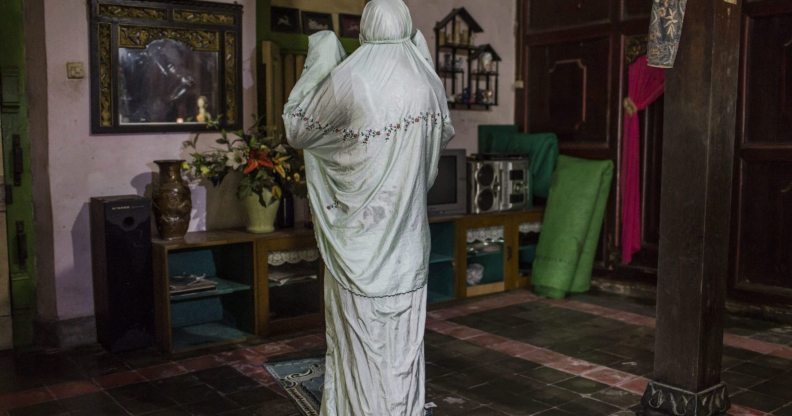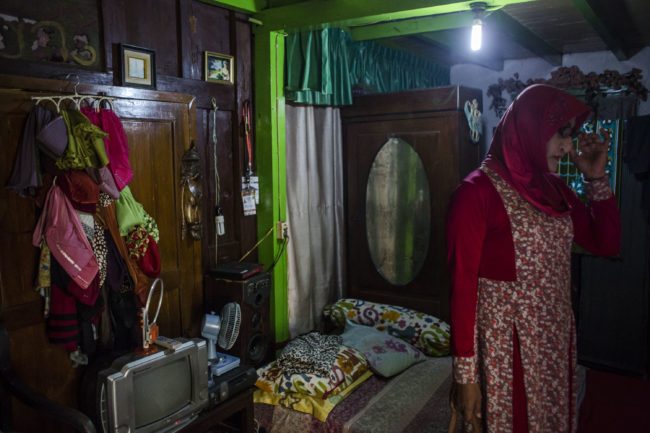Indonesia’s only trans-inclusive school re-opens after being forced shut by transphobic religious hardliners

(Photo by Ulet Ifansasti/Getty Images)
The only trans-inclusive Islam school in Indonesia has re-opened after it was forced to close by transphobic religious hardline groups.
The school closed in February 201 after a local hardline Muslim group pressured authorities to shut it down amid other anti-LGBT moves across the country.

Shinta Ratri ran the school from her home (Photo by Ulet Ifansasti/Getty Images)
Shinta Ratri, pictured, set up the school in her home in 2014 after the founder of the school died.
The 55-year-old trans activist was determined to create a safe space in which trans people could come for religious study.
The school also offers other services such as providing vocational training, a pop-up health clinic and help with applying for ID cards.
Before its closure, it became a social hub for the students.
Ratri, also known as Ibu Shinta, told VOA that the closure was nothing but a “hiccup” in the history of the school which has been going for nine years.
She quietly re-opened it in July 2016 but is now more vocal about the school being open as she wants to help more trans folk who may not know about the venue.
Related: Indonesia’s first Muslim transgender boarding school forced to close
Overall, Ibu Shinta estimates about 42 people use the service with between seven and 25 people using it on a regular weekly basis.
Yuni Shara al-Buchory is one of many students who attend the school.
She said that during the closure she felt lost.
“I felt lost for the four months the school was closed, without a place to study religion,” said Yuni Shara. “I would go into town to hang out, work, buy snacks, and eventually I would wonder: there is something missing, but what?”
Now, Ibu Shinta estimates that similar services are operating in eight provinces but hopes to soon “map” all similar participants and services across Indonesia.
“We are survivors,” said Ibu Shinta. “When there were attacks on and discrimination against us, it made us want to fight.”

